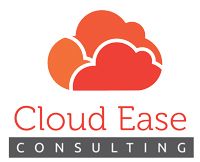As a business owner, keeping track of your time and expenses can be a daunting task. Especially if you are juggling multiple projects simultaneously. Accurately tracking timesheets and job costing is essential for the growth and profitability of your business. In this post, we will discuss seven key strategies that can help you stay on top of your timesheets and job costing.
1. Use a Time Tracking App
One of the best ways to keep track of your work is by using a time tracking app. It will help you accurately keep track of your work hours. Time tracking apps like Toggl and RescueTime provides real-time reporting and analytics that is helpful for calculating the amount of time spent on each task. They also allow you to compare the time spent on various projects and make informed decisions going forward.
2. Set Realistic Budgets
Setting realistic budgets for each project is essential for job costing. Keep in mind that projects can quickly become overrun and leave you in the red. By understanding the scope of the project, you can set appropriate budgets, and perhaps more important, identify areas where you can tighten the belt if needed.
3. Establish a Workflow
Establishing a workflow that incorporates your time tracking practices and job costing techniques can save you a lot of time and effort. By creating a workflow, you can ensure that all aspects of your projects are accounted for, and you can easily check and adjust your progress.
4. Use a Project Management Tool
Using a project management tool can help you streamline your job costing and time tracking. Platforms like WorkGuru, Asana and Trello are great for managing workflow and ensuring all aspects of a project are accounted for. They also offer time tracking features, which can be valuable for tracking billable hours.
5. Delegate Responsibilities
Delegating responsibilities can help you stay organized and on top of your time tracking. Assign each team member specific tasks and clearly communicate to them what is expected. When everyone knows their responsibility, it is easier to gauge the amount of time each project will require, and you can track job costing more accurately.
6. Track All Expenses
Track all expenses related to projects, including equipment, software, travel, and lodging expenses. These expenses can add up quickly, and it is essential to record them to calculate the overall cost of the project accurately.
7. Analyse Your Data
Analysing your data regularly can help you identify any areas of inefficiency and better understand your time expenditures. Keep track of your project costs, how much time you’re dedicating to specific tasks, and any other relevant data points. You can then use these insights to more accurately budget your time and expenses for future projects.
In conclusion, accurate time tracking and job costing are vital for the overall success and profitability of your business. By implementing these seven key strategies, you can take control of your time tracking and job costing—avoiding common pitfalls and gaining valuable insights into the progress and success of your business. Remember to use a time tracking app, set realistic budgets, establish a workflow, use a project management tool, delegate responsibilities, track all expenses, and analyse your data regularly. Good luck!

